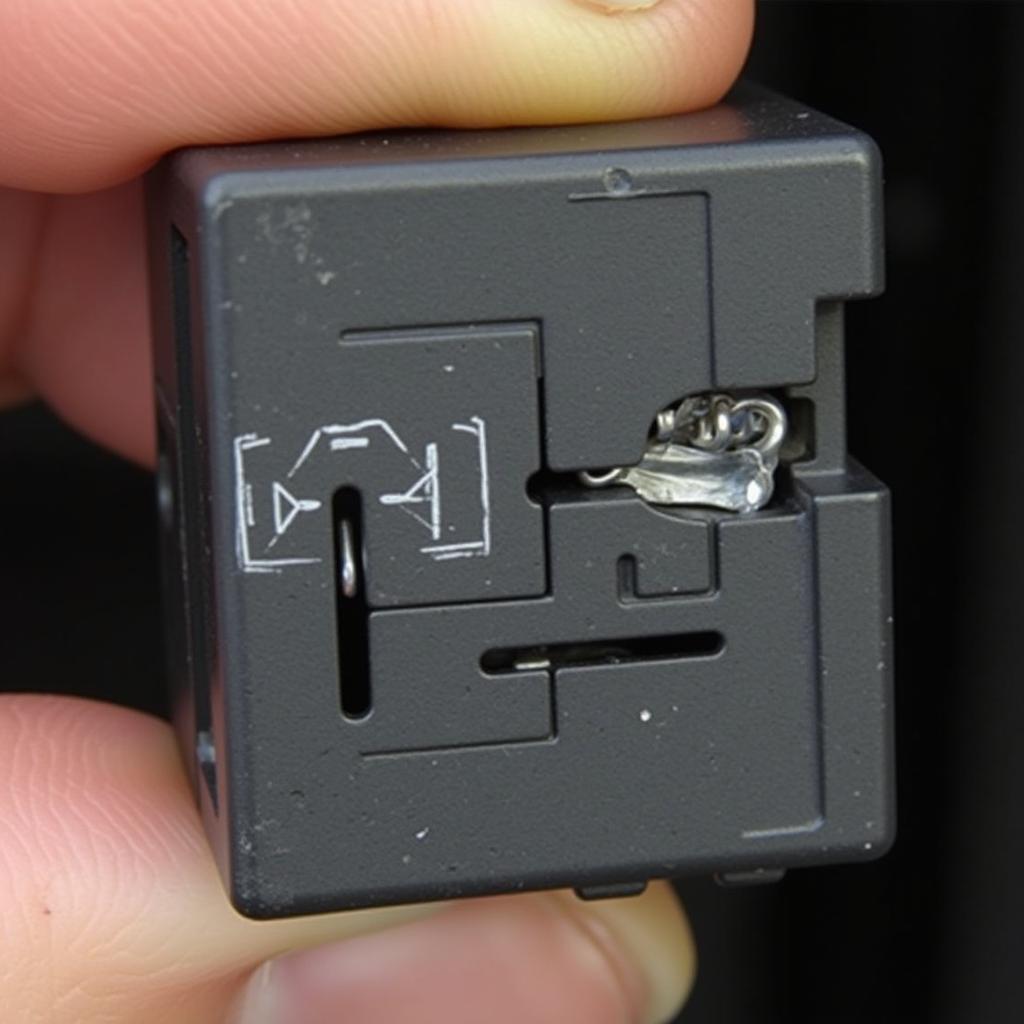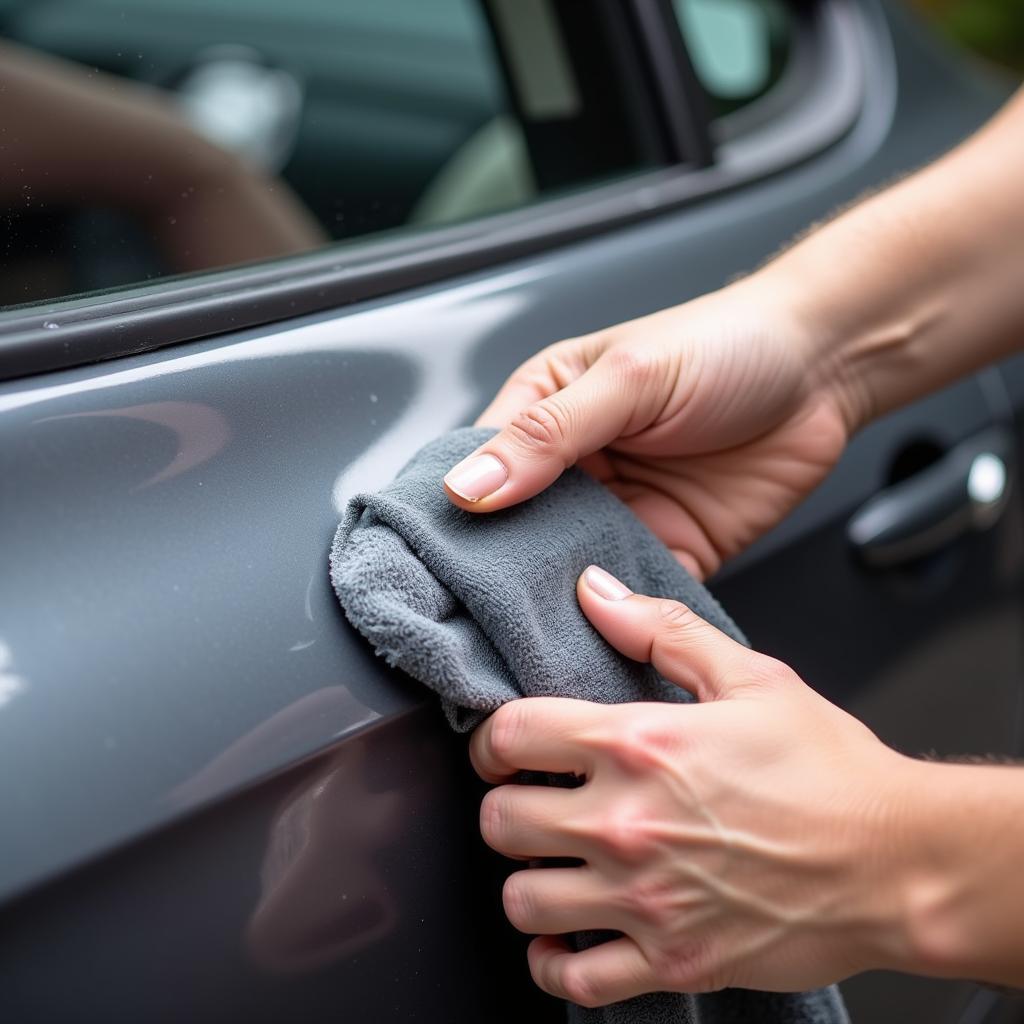Breathalyzer Car Problems can be a frustrating experience, especially if you’re caught off guard. These systems are designed to prevent drunk driving and ensure road safety, but they can sometimes malfunction, leading to unexpected issues. This article will delve into the various aspects of breathalyzer car problems, providing insights into their causes, troubleshooting steps, and potential solutions.
What Are Breathalyzer Car Problems?
Breathalyzer systems in cars are essentially alcohol detection devices integrated into the vehicle’s electronics. They work by detecting the presence of alcohol in the driver’s breath, using sensors to measure blood alcohol content (BAC). When the BAC exceeds a pre-determined threshold, the car may prevent the engine from starting or limit its performance. While this technology is intended to promote safe driving, it can sometimes lead to issues that require attention.
Common Breathalyzer Car Problems
Here’s a breakdown of some common problems that car owners might face with breathalyzer systems:
1. False Positives
One of the most prevalent issues is false positives, where the breathalyzer system indicates the presence of alcohol even when the driver hasn’t consumed any. This can be caused by various factors, including:
- Environmental factors: Exposure to certain substances like mouthwash, perfume, or even some food items containing alcohol can trigger a false positive.
- Sensor malfunction: Over time, the sensors in the breathalyzer system can become less sensitive, resulting in inaccurate readings.
- Software glitches: Occasional software bugs or updates can lead to misinterpretations of data, resulting in false positives.
2. Delayed Response
Another common issue is a delayed response, where the system takes an extended time to recognize the driver’s breath and provide a reading. This can be frustrating, especially when you’re in a hurry.
- Sensor calibration: The sensors in the breathalyzer system need to be calibrated regularly to ensure accurate readings.
- Hardware malfunction: A problem with the internal components of the system, such as the breath sensor or the electronic circuitry, could delay the response.
3. Engine Start Inhibition
Some breathalyzer systems are designed to prevent the engine from starting if the BAC exceeds the limit. While this is a safety feature, it can be problematic if the system malfunctions or provides a false positive.
- Sensor sensitivity: If the sensors are too sensitive, they might trigger the engine inhibition feature even for trace amounts of alcohol in the breath.
- Faulty wiring: Issues with the wiring connecting the breathalyzer system to the engine control unit (ECU) can lead to incorrect signals and prevent the engine from starting.
4. Performance Limitations
Another issue is performance limitations, where the car’s speed, acceleration, or other functionalities are restricted when the breathalyzer system detects alcohol. This is intended to discourage driving under the influence but can be inconvenient if the system malfunctions.
- Software malfunction: Issues with the software controlling the performance limitations can lead to inaccurate readings or inconsistent restrictions.
- Sensor failure: A faulty sensor might fail to detect alcohol accurately, leading to unnecessary performance limitations.
How to Troubleshoot Breathalyzer Car Problems
Here’s what you can do to troubleshoot common breathalyzer problems:
- Check the owner’s manual: Your car’s manual will have detailed information on how to operate and troubleshoot the breathalyzer system.
- Review the warnings: Pay attention to any warnings or error messages displayed on the dashboard related to the breathalyzer system.
- Test for false positives: If you suspect a false positive, avoid consuming anything that could contain alcohol, and test the system again.
- Ensure proper sensor calibration: Consult your car’s manual for instructions on how to calibrate the sensors or seek professional assistance from an authorized dealer or mechanic.
- Check for wiring issues: Have a qualified mechanic inspect the wiring connecting the breathalyzer system to the ECU for any loose connections or damage.
- Consider software updates: Check with your car manufacturer about available software updates for the breathalyzer system to address any known bugs or issues.
- Contact the manufacturer: If you encounter persistent or unusual problems, contact the car manufacturer for assistance.
“It’s essential to understand that breathalyzer systems are designed to enhance safety, but they can sometimes experience malfunctions,” says John Smith, a veteran automotive technician with over 20 years of experience. “While most issues can be resolved through basic troubleshooting, it’s crucial to seek professional assistance if you encounter recurring problems.”
Addressing Breathalyzer Car Problems
Once you’ve identified the source of the issue, you can take steps to resolve it.
1. False Positives
- Avoid triggers: Be mindful of the things that can trigger a false positive, such as mouthwash, perfume, and certain food items.
- Consult a mechanic: If the problem persists, a mechanic can inspect and potentially replace faulty sensors or address software glitches.
2. Delayed Response
- Calibrate the sensors: Follow the instructions in your owner’s manual for sensor calibration.
- Consider professional assistance: If the problem persists, a mechanic can diagnose and repair any hardware issues.
3. Engine Start Inhibition
- Avoid alcohol before driving: This is crucial to prevent the system from triggering the engine start inhibition.
- Check the wiring: A mechanic can inspect the wiring for damage or loose connections.
- Software updates: Check for available software updates that might address the issue.
4. Performance Limitations
- Avoid alcohol before driving: This is the most effective way to avoid performance limitations.
- Inspect the sensors: A mechanic can test the sensors for proper functionality.
- Software updates: Check for software updates that may resolve the issue.
FAQ (Frequently Asked Questions)
Q: What are the common signs of a breathalyzer car problem?
A: Common signs include false positives, delayed response, engine start inhibition, and performance limitations.
Q: Is it safe to drive with a malfunctioning breathalyzer system?
A: It’s not recommended. A malfunctioning system could lead to unexpected outcomes and compromise safety.
Q: Can I disable the breathalyzer system myself?
A: It’s not recommended to disable the system yourself. It’s best to seek professional assistance from a qualified mechanic.
Q: What should I do if my breathalyzer system is preventing the engine from starting?
A: Avoid consuming alcohol and attempt to restart the engine. If the issue persists, call a tow truck or contact a mechanic for assistance.
Q: How often should I calibrate the breathalyzer sensors?
A: Consult your owner’s manual for specific instructions on sensor calibration frequency.
Conclusion
Understanding and addressing breathalyzer car problems is essential for maintaining a safe and hassle-free driving experience. While these systems are designed to promote responsible driving, occasional malfunctions can occur. By following the troubleshooting steps outlined in this article, you can resolve most issues independently. If you encounter persistent or complex problems, don’t hesitate to seek professional assistance from a qualified mechanic or contact the car manufacturer.
For any automotive assistance, contact AutoTipPro at +1 (641) 206-8880 or visit our office at 500 N St Mary’s St, San Antonio, TX 78205, United States. We’re here to help you keep your car running smoothly and safely.






Leave a Reply